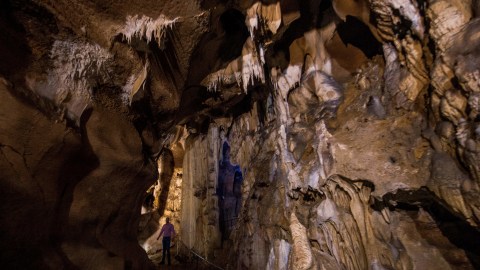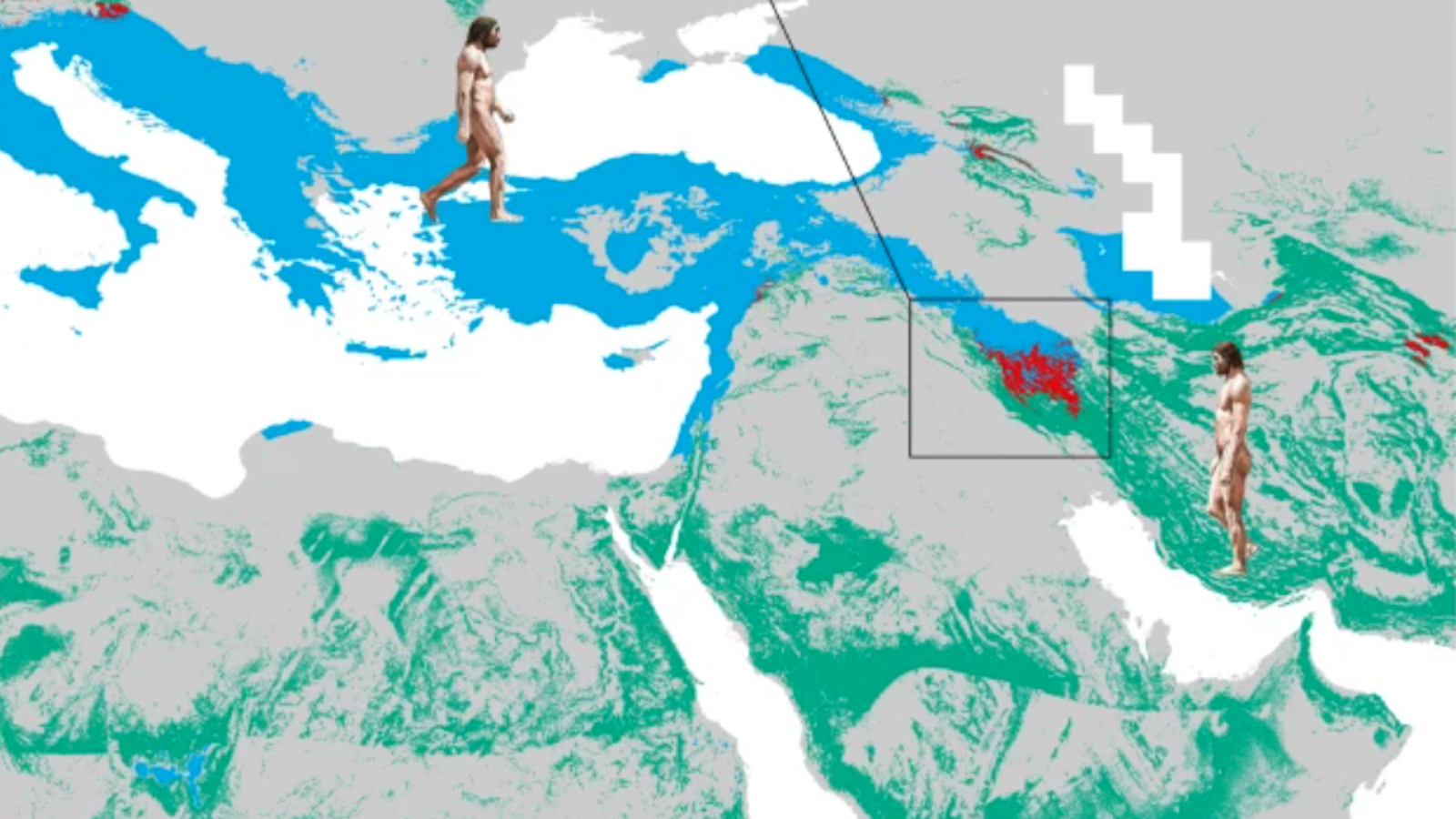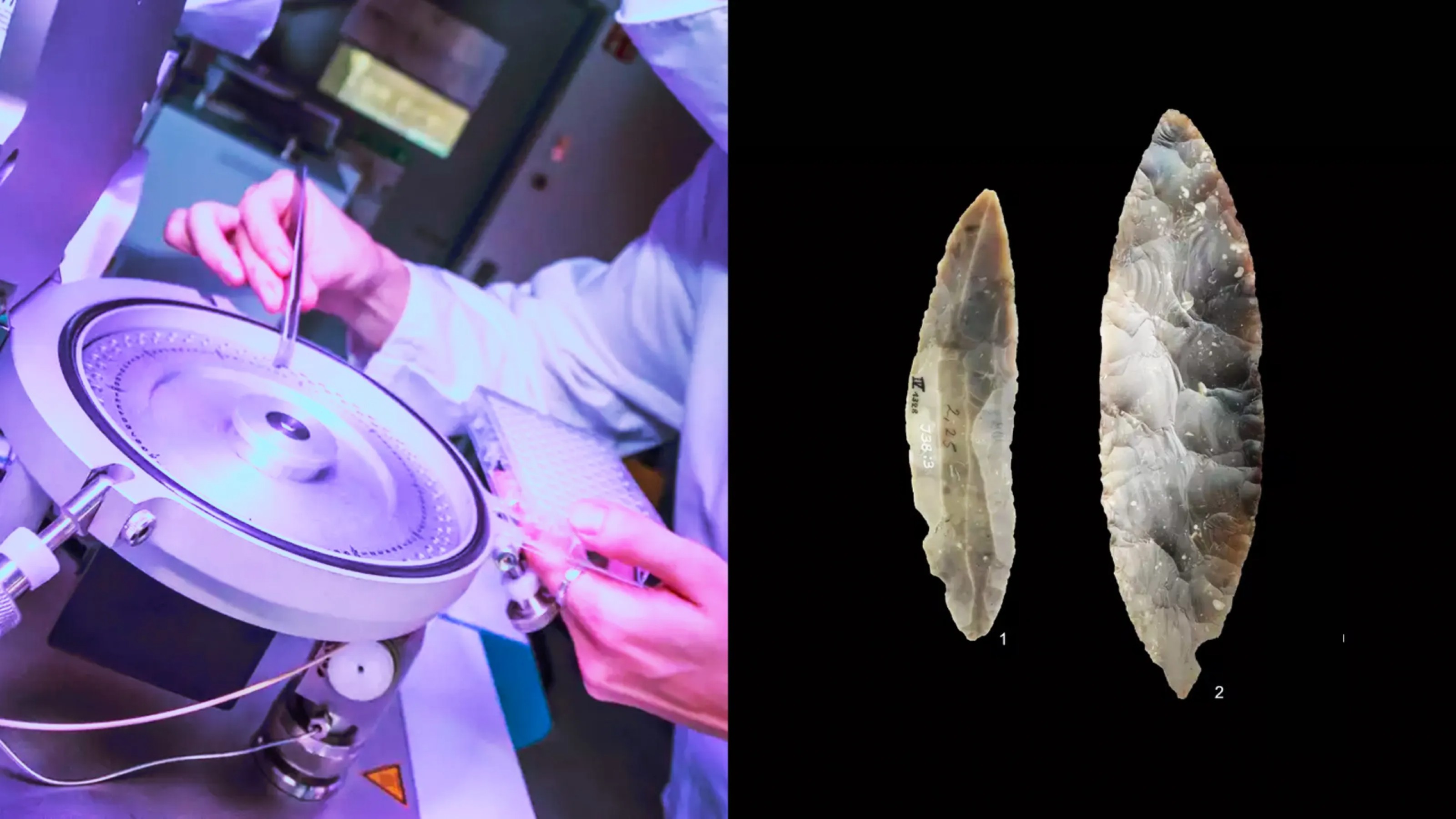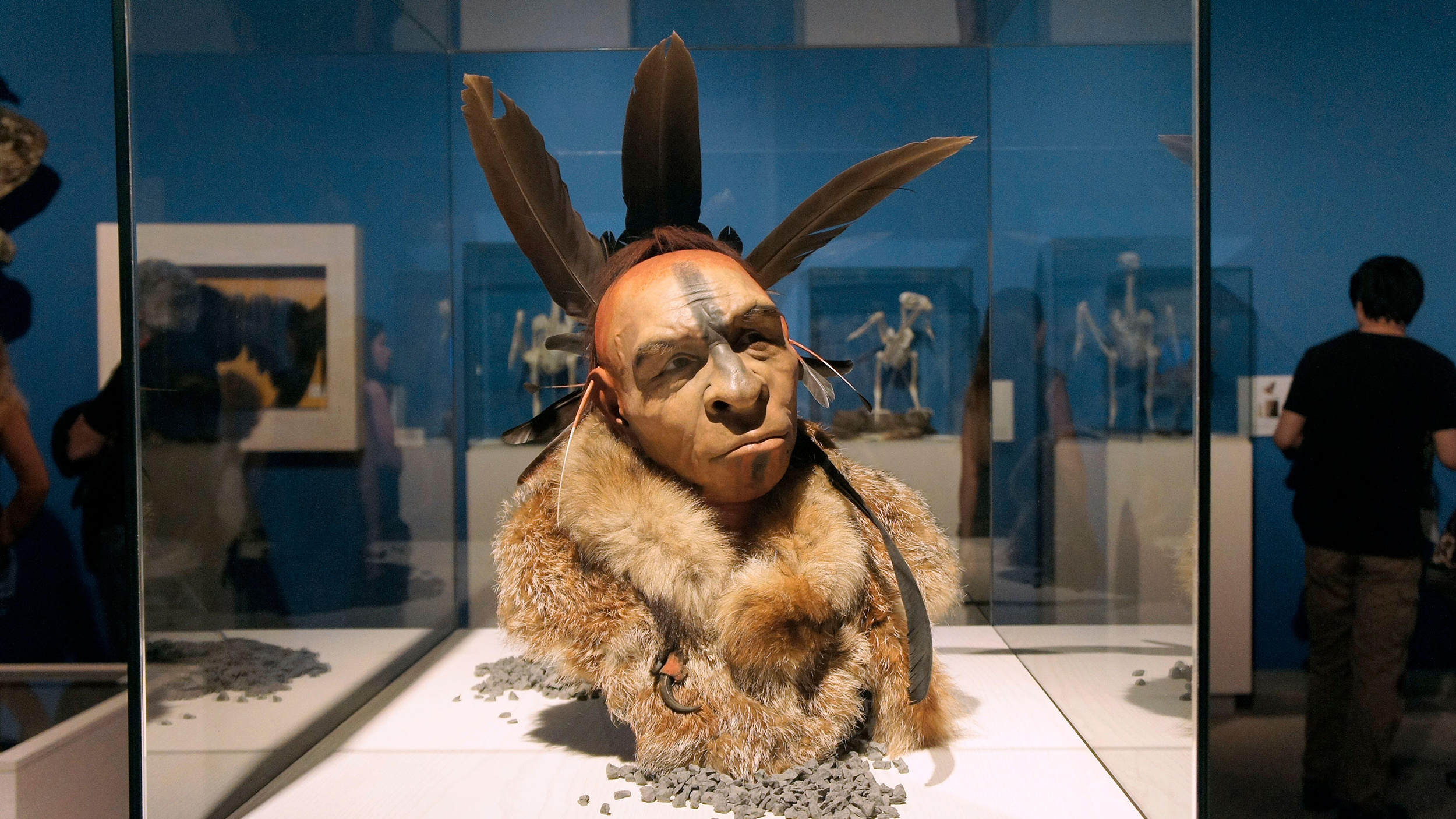Remains of first modern humans in Europe found

NIKOLAY DOYCHINOV/AFP via Getty Images
- Newly found human remains in Bulgaria have pushed back the date of Homo sapiens arriving in Europe by thousands of years.
- The site was also littered with animal remains and stone tools.
- These humans were not part of the tool-making culture that replaced the Neanderthals, leaving the fate of the discovered group a mystery.
Scientists working in a cave in Bulgaria have discovered bone fragments of the first examples of Homo sapiens to tread the European continent. Dating back to around 45,000 years ago, this new record holder beats the previous one by two and a half thousand years. While the residents of Bacho Kiro Cave don’t appear to have stayed in Europe for long, they may have left an influence felt long after they departed.
We Haven’t Evolved in Over 10,000 Years
One of the more popular models for the spread of anatomically modern humans out of Africa suggests that they reached the Middle East 50,000 years ago and then began to move into Europe. This discovery lends weight to that theory, as it would fit the timeline very nicely.
The cave also had a variety of stone tools and ornaments inside. These were made from quality flint brought with them over great distances and refined in ways particular to the Initial Upper Paleolithic time frame, giving even more evidence of exactly when these people lived.
The similarities between some of the ornaments found, including jewelry made from animal teeth, to items found at Neanderthal sites from thousands of years later led the authors to speculate that these first arrivals from the Middle East may have influenced the Neanderthals.
Of course, you mustn’t forget Neanderthals were already doing their own thing for a while, including making tools and jewelry. While it is possible that the newcomers influenced them, it is also possible that they weren’t. As the Neanderthals were ultimately replaced by later arriving Homo-Sapiens, known as the Aurignacian culture, this new group may have been a mere blip on their Paleolithic radar.
There is also the highly controversial claim that a 210,000-year-old skull belonging to an anatomically modern human was found in Greece a while back. However, that finding was unable to confirm exactly what species the skull in question belonged to.
The Bulgarian discovery also adds a curious chapter into human history, as the members of this group were not members of the group of modern humans that ultimately replaced the Neanderthals, albeit with some interbreeding with their neighbors. That latter group dates back to 43,000 years ago at most, meaning that the residents of Bacho Kiro Cave were a few thousand years too early to the party.
For whatever reason, their attempt to move into Europe was either a failure, too limited in size and scope to be part of the replacement of the Neanderthals, or was somehow otherwise unable to gain a foothold on the continent. Finding out why this is will be a very interesting topic for future research.
Perhaps they only found Europe to be a nice place to visit.





